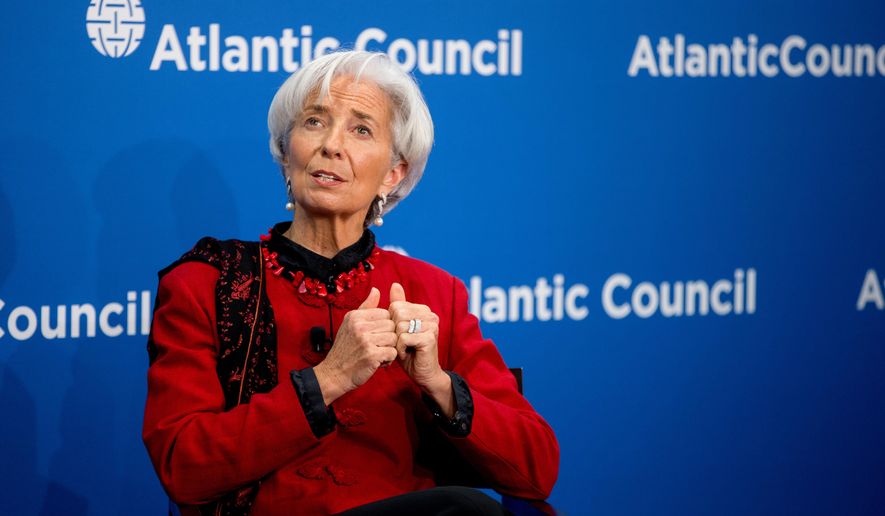A stronger dollar and weaker demand in its major trading partners will cut into U.S. growth through 2016, the International Monetary Fund said in a new survey Tuesday, while the forecast is a bit sunnier for Europe and Japan.
Going into this week’s annual spring meetings of the IMF and World Bank in Washington, IMF economists now predict that the American economy will grow 3.1 percent this year and next, down from January’s forecast of 3.6 percent growth in 2015 and 3.3 percent growth in 2016.
Global growth is projected to hit 3.5 percent in 2015 and 3.8 percent in 2016, which is essentially the same as last year’s numbers. But the overall uptick in global output marks some troubling trends among developing economies.
Growth forecasts for most emerging and developing economies are projected to slump. Growth is projected to slow from 4.6 percent in 2014 to 4.3 percent in 2015.
“A number of complex forces are shaping the prospects around the world,” said IMF Director of Research Olivier Blanchard. “Legacies of both the financial and the euro area crises — weak banks and high levels of public, corporate, and household debt — are still weighing on spending and growth in some countries. Low growth in turn makes deleveraging a slow process.”
Mr. Blanchard also noted that the combination of aging populations, lower investment and sluggish advances in productivity mean greater headwinds for many countries.
“More subdued growth prospects lead, in turn, to lower spending and lower growth today,” he said.
Global growth in 2015 will come by way of a rebound in growth from advanced economies — forecast to increase from 1.8 percent last year to 2.4 percent this year
The growth is expected to be buttressed by the decline in oil prices. Oil prices are projected to decline further still in the event a nuclear deal is struck between the U.S. and Iran. An agreement could result in a lifting of sanctions against Iran and a major surge in supply on global markets.
Economic conditions in developing economies and fledging economies, the survey found, are highly variable and react more sensitively to external conditions than in developed economies.
The oil price declines, for example, will sharply slow growth for oil exporters, especially those that also face difficult initial conditions.
Growth in Latin America countries will continue to weaken due to lower commodity prices. Brazil’s outlook is also affected by a drought, tighter macroeconomic policies and weak private-sector sentiment.
The fund expects Japan to grow 1 percent this year and 1.2 percent next year, versus an earlier forecast of 0.6 percent this year and 0.8 percent in 2016. The Japanese economy shrank 0.1 percent in 2014.
— This story was based in part on wire service reports.
• Chris White can be reached at cwhite@washingtontimes.com.




Please read our comment policy before commenting.